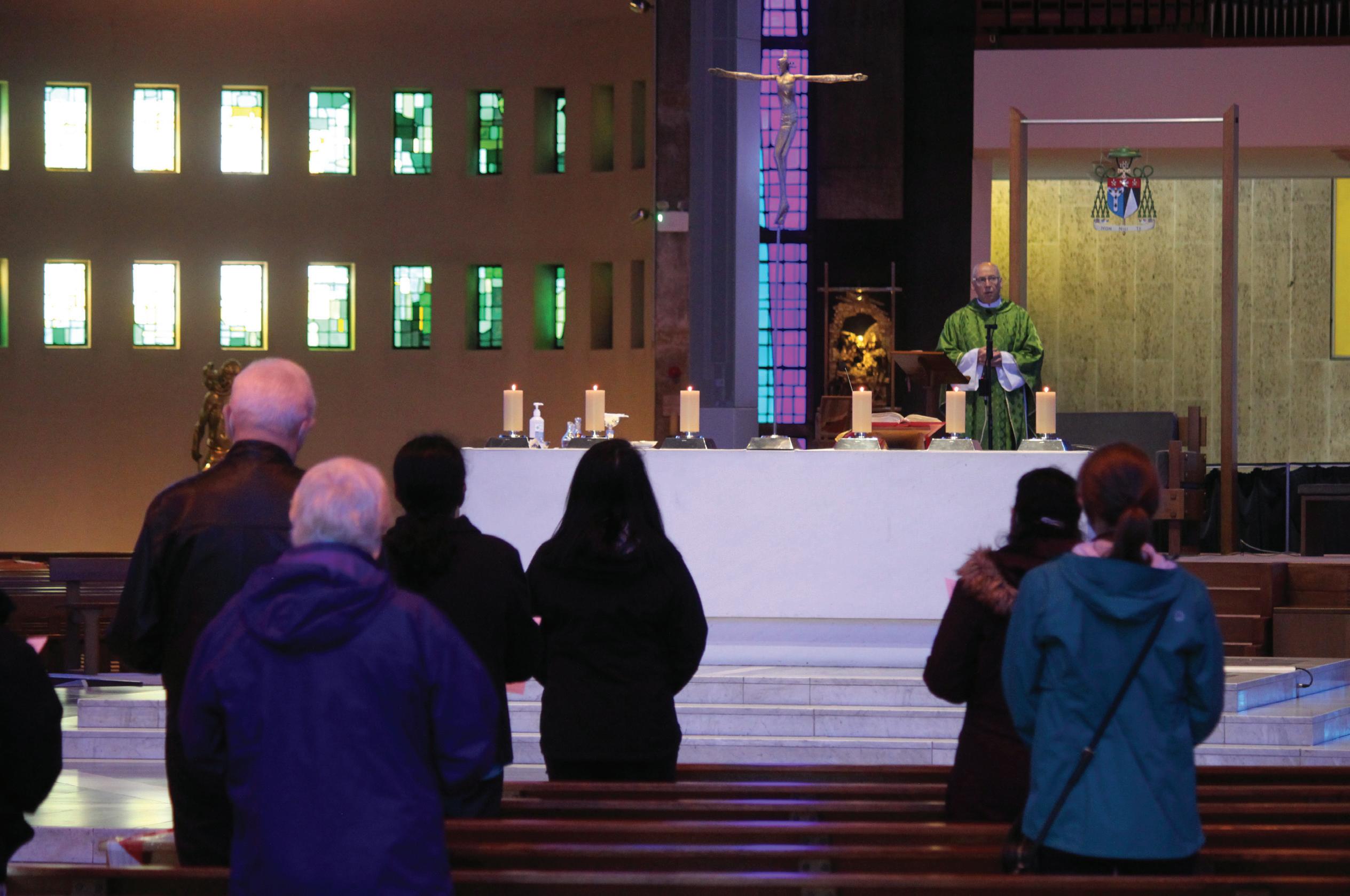
5 minute read
Justice and Peace
by Peter Ross
Letter from Oscott
Advertisement
The last month has brought much cause for celebration. On 7 July, Martin Fyles, James Finnegan and myself received the lay ministry of Reader. In addition, Michael Harwood from the Beda College received the lay ministry of Acolyte.
We were instituted into these ministries during a Mass celebrated by Archbishop Malcolm McMahon at St Charles parish church in Aigburth. Originally, I had been due to receive this lay ministry at Oscott with the other students in my year group on 24 March, but the lockdown prevented this. While it is a requirement to receive these two lay ministries in order to be ordained, they are still quite separate from the priesthood. As already mentioned, these are indeed ‘lay’ ministries – roles for lay people, rooted in baptism. It was a great afternoon, shared with my fellow seminarians.
On an equally celebratory note, we were recently able to reopen our parish church for the celebration of public Mass. After four months of having just Father Ian and myself in church, it was a cause of great joy to see other people sat in the pews. I could clearly see that people were smiling under their masks as they walked into church. Yet while the church is back open, we are still planning on streaming the Sunday Mass for those who are shielding. When I applied for seminary, I never thought that part of my formation would entail coming to grips with broadcasting software, but God does have a sense of humour!
Speaking of streaming, over the past few weeks we’ve been able to include contributions from our parish schools: on two consecutive Sundays we had some of the children leading us in our bidding prayers, and they did it so well.
As this is my last letter, I would like to thank you for reading this column over the past year. I hope you have got something from it, as I have certainly gained a lot from writing these articles each month. Please remember to pray for vocations in our diocese, that the Lord will send many workers into his great harvest.
A moment of optimism
By Steve Atherton, Justice & Peace fieldworker
I hope you were able to attend the J&P online assembly and hear Cardinal Michael Fitzgerald (pictured right) speak about ‘inspiration’. He referred to the Council of Jerusalem where the disciples could say ‘It seems good to the Spirit and to us’ and crucially, by the end of our week of shared reflections, many of us (I can’t speak for all but the feedback is wholly positive) were daring to believe that the Spirit does indeed speak through us. The plural pronoun is key: not to me but to us. This is theologically startling for those of us who have been trained to expect and accept a lowly role within the Church. Isn’t one of the functions of theology to make the formerly obscure blindingly obvious? It seems obvious that the Spirit is shouting loudly that we need to be involved in preparing the future, with the ‘we’ in question being the people in parishes. It’s when we get involved that the Spirit speaks and our Church comes alive. Another theme that emerged strongly was the need to be prophetic. Prophets are disturbing but they are voices of hope, pointing to where we can find greater life. As we emerge from the COVID-19 lockdown we cannot stay where we are any longer, nor can we return to the ‘old normal’. We’re called to make changes to the way we live as individuals, renewing the old mantra of Livesimply. Again, this is plural – communal. We must change. It’s not just that they must change. And the change we want is a cause for joy. Crucially, prophets must work for systemic changes to the way society is organised, staying together because it’s much easier to feel inspired in the company of prophets than as a lone, isolated voice. There is grace in this moment, which calls us to welcome a rebirth in hope. And so, as in Jerusalem early in the Christian story, it seems good to the Spirit and to us that we should be active as a Church community to ‘prepare the future’. We can expect stubborn opposition to calls for any change that affects the pockets of the super-rich. At the point of resistance we will need courage to practise what we preach. We ‘get involved’ when we cultivate the practice of ‘See – Judge – Act’: when we look outwards from Church, with the doors wide open to the world, and we notice what is happening to our brothers and sisters, especially to the poorest and most marginalised, and seek to invite them into the kingdom of God. The Liverpool J&P Commission has had some influence on diocesan policy but never before have we dared to believe what now seems obvious. It was the work of the Spirit to gather a group of people who are lay-led and well-integrated into the Archdiocese, a community of people encouraged and enabled to become active in the life of the diocese by knowingly using the practice of ‘See – Judge – Act’ to pray, reflect and act. My hope is that this way of being Catholic can become even more important in the life of the diocese so that we end up not with a Justice and Peace Commission but a Justice and Peace Archdiocese, committed to the vision and practice of our Lord Jesus who came to bring sight to the blind, to set captives free, to make the lame walk, and to protect widows and orphans. Then we would know that the Spirit is moving among us. This is my last column as J&P fieldworker as I retire at the end of the month. It has been a privilege. ‘Everything begins in mysticism and ends in politics.’ – Charles Peguy










